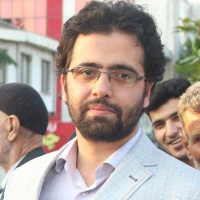Role of Creative Drama in Education using Views of John Dewey
Author(s):
Article Type:
Research/Original Article (دارای رتبه معتبر)
Abstract:
John Dewey thought that the mission of philosophy was social change, and the desired change could be achieved through education. According to Dewey, the sole purpose of education is to reform society and pave the way for social progress, thus demonstrating the necessity of education for the survival of society. Cultural and artistic venues such as educational theater are useful venues that can have great effects on moral growth and desired social change for their communities. Creative Drama provides an opportunity for people to express their inner desires. Here, certain situations similar to reality are created, where the audience is allowed to practice and experience life, without having to endure losses and lose opportunities. Dewey's aesthetic and educational theories can be useful in increasing the social and artistic function of creative drama.This study was mainly based on secondary research using existing fundamental works of Dewey's education philosophy and aesthetics, aiming to explore the effect and importance of theatrical plays as a means of promoting education in schools and the community at large. The main features of applied theater are introduced and suggestions are provided to increase the effectiveness and function of this art form as a way to improve people's social lives. For this purpose, after examining the basic concepts of Dewey's philosophy (e.g. pragmatism, experience, aesthetics, education, and the role of theatrical plays in education) certain and specific aspects of the applied theater are introduced. This study also included a case study of creative drama based on Dewey's educational theories. By re-reading creative drama, suggestions are presented in order to use Dewey's educational theories, hoping to help artists to take proactive steps in the field of education aimed at social awareness and change.According to Dewey, students develop in an educational setting where they can experience and interact with the issue at hand. Each and every student needs to play a role and cooperate in their learning process. Dewey believed problem-solving to be the best teaching method, fitting individuals for life and empowering them to solve problems in their personal lives and their social interactions. Problem-solving was deemed the best teaching method by Dewey, which leads to creative drama and its effectiveness since its base foundation is formed around the theory of problem-solving. The first step in creative drama is to tell a story to students thoroughly. This paper seeks to show that when a story is told to students incompletely, in order to be completed by them in a creative drama, a problem will be formed in their minds, encouraging them to solve it. If the content of creative drama is presented to learners in full detail, their mental engagement with the content will be reduced, and, consequently, their ability and motivation to interact will diminish. Performing creative drama based on problem-solving exposes students to the problem in a creative manner; they are encouraged to cooperate and think to bring the drama to a desirable end. Placed at the core of problem in creative drama, students are forced to think and provide solutions that ultimately are skills that they will need in their own lives.
Keywords:
Language:
Persian
Published:
Honar-Ha-Ye-Ziba: Honar-Ha-Ye Mosighi Va Namayeshi, Volume:26 Issue: 71, 2021
Pages:
43 to 53
https://magiran.com/p2365415
مقالات دیگری از این نویسنده (گان)
-
Delineating Aesthetic and Educational Aspects of Theater of the Oppressed Using John Dewey’s Ideas
Milad Hasannia, Nader Shayganfar *, Rahmat Amini
Kimiya-ye-Honar,



